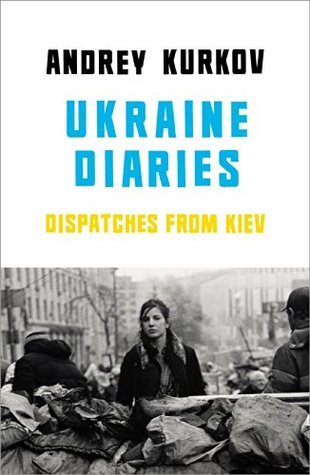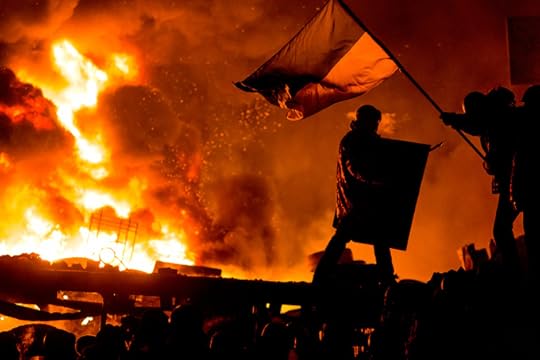What do you think?
Rate this book


272 pages, Paperback
First published January 1, 2014
Yesterday, Tymoshenko said she had no intention of withdrawing her candidacy and that she was already supporting Poroshenko enough by constantly buying his sweets…After that, I had an awful dream: on President Tymoshenko’s orders, the members of Pravy Sektor were being arrested in the middle of the night, and those who managed to escape took refuge in the forest. Tymoshenko had full powers, in spite of a return to the 2004 constitution, and her prime minister- completely under her control- turned obediently whenever she yelled ‘Hey!’ at him.He worries about how all of this revolutionary energy will be used, now that the revolution has (tentatively) been won, how its gains will be safeguarded and built upon, and offers what I think is a very perceptive insight into Putin’s motivations:
Thousands of Maidanistas and members of the self-defense have already begun military training. When the radio announces this news, the sense that war is imminent is only intensified. Before, the news was bad, focusing on sad events. Now it is bellicose and full of enthusiasm…And later, after the annexation of Crimea,
The fact is, though, that revolution radicalises normal citizens, and- once radicalised- those citizens hardly seem accountable for their own actions. We need time. The country needs a period of calm, like all convalescents. But there is no calm, for the moment, because next door to us is Putin, who…will do all he can to prove to the people of Russia that a government cannot be changed through revolution…
Putin has to find a way to make Europe and the United States accept the annexation. There is only one way…foment a civil war in Ukraine and encourage pro-Russian activists- armed, of course- to march on Kyiv…
There are too many different groups, incapable of getting along; some revolutionaries are demanding a free apartment, others aproof of residence, and yet others help in finding a steady job in Kiev. They took Kiev, didn't they? They got rid of [ex-President] Yanukovych. Now they want to be rewarded. But isn't a normal country, freed from corruption, the greatest prize any normal citizen could ask for?It is easy to be sardonic when your adopted country (Kurkov was born in Russia) is controlled by thugs and looters, and Karkov was sardonic enough to be in danger during the revolt.
